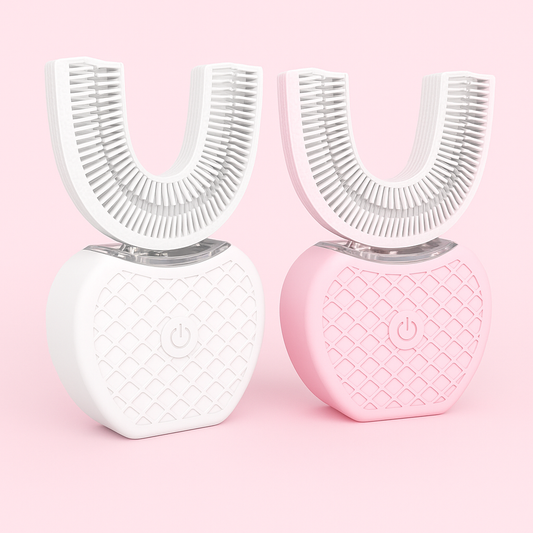Introduction: The Growing Importance of Natural Oral Care in 2025
As we advance further into 2025, the desire for natural and effective oral health solutions continues to grow. Consumers are increasingly aware of the harmful effects that conventional sugars and some chemical additives can have on their teeth and overall health. Against this backdrop, xylitol has emerged as a natural powerhouse ingredient, offering significant benefits for fresh breath and cavity prevention. This blog post delves deep into the science, benefits, and practical uses of xylitol, helping you understand why it’s becoming a staple in modern oral care.
What Exactly is Xylitol?
Xylitol is a naturally occurring sugar alcohol found in many fruits, vegetables, and hardwood trees. Chemically, it is classified as a polyol and is widely used as a sugar substitute due to its sweetness and low glycemic index. Unlike regular sugar (sucrose), xylitol contains fewer calories and does not cause spikes in blood glucose levels, making it especially popular among diabetics and health-conscious individuals.
Commercially, xylitol is extracted from birch wood or corn cobs, and it has been used safely in food and oral care products for decades. Its unique properties extend beyond just sweetening; it plays a functional role in promoting oral health, which sets it apart from many other sugar substitutes.
The Science Behind Xylitol’s Oral Health Benefits
The oral cavity is home to a complex ecosystem of bacteria, some beneficial but many potentially harmful. The primary culprit behind tooth decay is the bacteria Streptococcus mutans. These bacteria metabolize sugars to produce acids that erode tooth enamel, leading to cavities. Xylitol impacts this process in several important ways:
- Inhibiting Bacterial Growth: Unlike sugar, which bacteria ferment and convert into acids, xylitol cannot be metabolized by S. mutans. When these bacteria consume xylitol, their energy production is disrupted, weakening them and reducing their ability to adhere to teeth surfaces.
- Reducing Plaque Formation: By limiting bacterial adhesion, xylitol lowers the formation of plaque—a sticky biofilm that harbors acid-producing bacteria and promotes tooth decay.
- Stimulating Saliva Production: Chewing xylitol-containing gum stimulates saliva flow, which helps neutralize harmful acids, wash away food debris, and provide minerals needed for enamel repair.
- Promoting Enamel Remineralization: Saliva stimulated by xylitol is rich in calcium and phosphate ions. These minerals help rebuild weakened areas of enamel, reversing early decay and strengthening teeth.
Clinical Evidence Supporting Xylitol’s Effectiveness
Numerous scientific studies and clinical trials have validated xylitol’s efficacy in improving oral health. Some notable findings include:
- Reduction in Dental Caries: Research consistently shows that regular use of xylitol reduces the incidence of cavities in both children and adults. A landmark study found that children consuming xylitol-sweetened gum experienced a 40-80% reduction in new cavities compared to controls.
- Decreased Plaque Mass and Bacterial Levels: Clinical trials demonstrate that xylitol lowers plaque accumulation and S. mutans populations in saliva and dental plaque.
- Improved Breath Freshness: By reducing the bacteria responsible for bad breath (halitosis), xylitol helps maintain a fresher mouth naturally, without masking odors with artificial fragrances.
- Safe for Long-Term Use: Xylitol has been deemed safe by international health authorities, including the FDA and the European Food Safety Authority, for daily oral care applications.
Why Xylitol is Especially Relevant in 2025
Several factors make xylitol particularly important today:
- Rising Awareness of Sugar’s Negative Impact: High sugar consumption remains a global health issue, contributing to obesity, diabetes, and dental problems. Xylitol provides a natural alternative that supports health without the drawbacks of sugar.
- Demand for Natural and Clean Label Products: Consumers increasingly seek products free from artificial sweeteners and chemicals. Xylitol, being plant-derived and safe, fits well with this trend.
- Advancements in Oral Care Formulations: Modern dental products now incorporate xylitol in innovative ways—such as slow-release lozenges, chewing gums, toothpastes, and mouth rinses—to maximize its benefits.
- Integrative Health Approaches: More people are adopting holistic health practices, recognizing the link between oral health and systemic health. Xylitol’s natural and multifaceted benefits align with this holistic approach.
How to Incorporate Xylitol into Your Daily Oral Care Routine
Here are practical ways to make xylitol a part of your oral health regimen in 2025:
- Chewing Gum and Mints: Choose sugar-free gums and mints sweetened with xylitol. Chewing gum for 5-10 minutes after meals helps stimulate saliva and reduce cavity-causing bacteria.
- Toothpaste and Mouthwash: Use oral hygiene products that contain xylitol. These products combine mechanical cleaning with the biochemical benefits of xylitol to protect teeth throughout the day.
- Natural Food Sources: While commercial xylitol products provide concentrated benefits, eating foods that naturally contain xylitol—such as berries, mushrooms, and leafy greens—can supplement your intake.
- Regular Dental Checkups: Combine xylitol use with routine dental visits to catch potential issues early and optimize your oral health strategy.
Safety Considerations and Potential Side Effects
Although xylitol is generally safe, it's important to keep these considerations in mind:
- Pet Safety: Xylitol is extremely toxic to dogs and some other pets, even in small amounts. Always store xylitol-containing products out of your pet’s reach.
- Digestive Tolerance: Excessive consumption of xylitol may cause mild digestive issues such as gas, bloating, or diarrhea in sensitive individuals. Moderation is key.
- Allergic Reactions: Rarely, some people may experience allergic reactions. If you notice any unusual symptoms, discontinue use and consult a healthcare professional.
The Future of Xylitol in Oral Health
Research into xylitol continues to evolve, with promising developments on the horizon:
- Enhanced Delivery Systems: New formulations such as slow-release lozenges and bioadhesive gels aim to prolong xylitol’s protective effects in the mouth.
- Combination Therapies: Scientists are exploring synergistic effects of xylitol combined with probiotics and natural antimicrobials to further improve oral microbiome balance.
- Personalized Oral Care: Advances in personalized medicine may allow tailored xylitol-based treatments based on individual oral microbiota and risk factors.
Conclusion: Embrace Xylitol for a Healthier Smile in 2025
Xylitol offers a natural, scientifically validated solution to two of the most common oral health concerns: fresh breath and cavity prevention. Its unique ability to inhibit harmful bacteria, promote saliva production, and encourage enamel repair makes it an invaluable component of modern oral care. As we embrace more natural and holistic health practices in 2025, integrating xylitol into your daily routine can help you achieve a healthier, brighter smile with confidence.
Whether through xylitol-sweetened chewing gum, toothpaste, or mouthwash, the simple act of incorporating this natural sweetener can transform your oral hygiene regimen. Remember to use it responsibly, keep it away from pets, and consult your dental professional for personalized advice. Unlock the power of xylitol and enjoy the lasting benefits of fresh breath and cavity-free teeth all year round.


